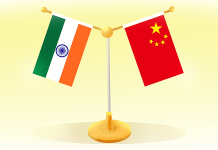
The recent tariff hikes announced by U.S. President Donald Trump have sent shockwaves through global trade circles. In response, the economic wing of the Rashtriya Swayamsevak Sangh (RSS), Swadeshi Jagaran Manch (SJM), has called for India to reconsider its commitments to the World Trade Organisation (WTO) and the Trade-Related Aspects of Intellectual Property Rights (TRIPS). SJM argues that these international agreements have disproportionately harmed India’s economic interests.
In This Article:
The Trump Tariff Move: A Global Trade Disruption
On April 3, 2025, Trump imposed steep tariffs on multiple countries, triggering global concerns about the future of free trade. The move, described by Trump as “Liberation Day,” demonstrates a blatant disregard for WTO regulations. The U.S. is leveraging tariffs as a strategic tool to reshape global trade dynamics, particularly targeting China while also impacting India and other economies.
India, ranking 19th among affected countries, faces new trade barriers but may find a silver lining. As Chinese goods become more expensive in the U.S. market, Indian products could gain a relative cost advantage. However, the long-term ramifications of these tariffs remain uncertain, necessitating a proactive response from India.
RSS Calls for ‘Dumping’ WTO and TRIPS
Ashwani Mahajan, co-convenor of SJM, argues that WTO commitments have cost India heavily, particularly through TRIPS compliance. Since signing onto these agreements, India has witnessed a significant increase in royalty payments, which have surged to over $17 billion. Mahajan describes TRIPS as “inhuman,” citing the refusal of Western nations to exempt COVID-19 medications from intellectual property restrictions.
According to Mahajan, the West prioritizes profit over humanitarian concerns, compelling India to reconsider its alignment with such global frameworks. If the U.S. disregards WTO rules, India should reassess its own obligations, focusing on self-reliance and economic sovereignty.
The Case Against TRIPS: A Hindrance to Economic Growth?
TRIPS, established in 1994, enforces stringent intellectual property protections, favoring multinational corporations from developed nations. For developing economies like India, these regulations limit technological advancements and inflate costs for essential goods, including medicines and agricultural inputs.
Critics argue that TRIPS has led to monopolization in various sectors, stifling innovation and raising consumer prices. India’s pharmaceutical industry, known for producing affordable generic drugs, has been constrained by TRIPS obligations. The inability to bypass patent restrictions on life-saving medications during the pandemic highlighted the system’s inequities.
Potential Benefits of Exiting WTO and TRIPS
Should India choose to step away from WTO and TRIPS, it could potentially achieve the following benefits:
- Enhanced Economic Sovereignty – India would regain control over its trade policies, allowing greater flexibility in protecting domestic industries.
- Support for Local Innovation – Freeing itself from rigid IP regulations could boost indigenous research and manufacturing.
- Improved Competitiveness – Indian businesses would no longer be bound by unfair global trade restrictions, enabling them to thrive in domestic and international markets.
However, a complete exit from WTO could carry risks, including potential trade isolation and retaliatory measures from global partners. India must weigh its options carefully and explore alternative frameworks that align with national interests.
Silver Lining: India’s Strategic Opportunity in the U.S. Market
Despite concerns over new tariffs, India may benefit from China’s increasing trade barriers with the U.S. With Chinese goods expected to become 34% costlier, Indian exports—projected to rise in competitiveness at a 26% increased cost—could capture a larger market share. This shift presents an opportunity for India to expand its footprint in U.S. trade.
However, the Indian government must tread cautiously, ensuring that key sectors such as agriculture, dairy, and small-scale industries remain protected. Policies should be tailored to balance global trade engagements while prioritizing domestic economic resilience.
Trump’s tariff move and the subsequent reaction from RSS’s economic wing highlight a pivotal moment for India’s global trade strategy. The call to reevaluate WTO and TRIPS underscores growing discontent with international trade frameworks that favor developed economies. While exiting these agreements could bolster India’s economic independence, it also poses significant diplomatic and economic challenges.
India must navigate these turbulent waters by adopting a balanced approach—leveraging trade opportunities while protecting its domestic industries. As the global trade landscape evolves, India’s policy decisions in the coming months could redefine its economic trajectory for years to come.
By – Jyothi



